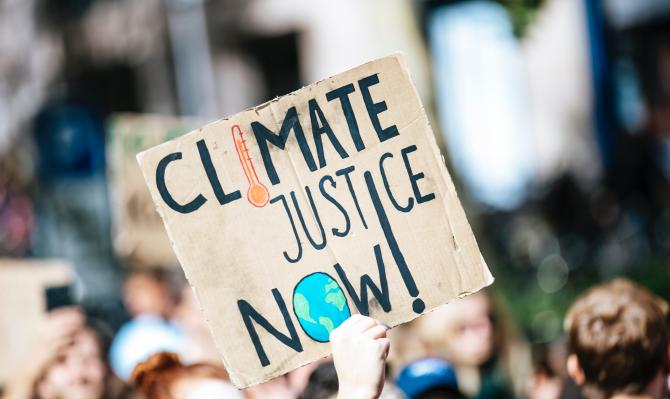The challenge of the energy transition
The 2015 Paris Agreement set the goal of limiting the rise in global temperatures to below 2 degrees above pre-industrial levels and to pursue efforts to limit the increase to 1.5 degrees. This ambitious but inescapable goal requires a major reduction in global greenhouse gas emissions, something that will only be possible in the context of a transition that reduces energy demand and shifts the energy mix towards one of cleaner energies.
This is an area in which the EU can exercise clear global leadership. In fact, it is already doing so and its degree of commitment contrasts with the reluctance – and at times outright rejection – of the current US government. The EU has sufficient critical mass to have an impact on the whole planet, as well as to drag other countries along with it.
In addition, this area offers a natural sphere in which the EU can share efforts in terms of public resources and take the opportunity to strengthen its fiscal capacity. A significant portion of these resources should serve to boost basic research in technologies that could prove key for achieving the goals of the Paris Agreement and that are currently further away from being economically viable on a large scale, such as the use of hydrogen as an energy source or possible ways to capture and store carbon dioxide. The EU must also make progress in integrating national energy markets. This is even more necessary if there is greater dependency on renewable energies involving intermittent generation, such as solar or wind power, which require larger-scale networks capable of balancing supply and demand.
From the point of view of firms and households, it is imperative that there is a clear and stable regulatory framework for the energy transition. Ideally, the laws that define it should have broad political and social consensus – a guarantee of stability. Many companies must make large investments to lead or adapt to this transition with long-term profitability horizons, decisions that require certainty and legal security. When deciding what type of home or vehicle to purchase, households also need to know which rules to follow. Situations such as the current one, in which uncertainty over possible future restrictions on the movement of diesel vehicles in various European countries has contributed to a slowdown in sales, need to be avoided.
The financial system must also play a central role in the energy transition. The European Commission has estimated that investment amounting to around 200 billion euros a year needs to be mobilised. In its role as an intermediary between savings and investment, the financial system will be key for directing resources towards projects that contribute to adapting to and mitigating the effects of climate change. To this end, it will need to integrate environmental criteria into its financial decisions, one of the cornerstones of so-called sustainable finance. This does not mean renouncing profitability: recent studies indicate that responsible investments can offer a better risk-return.
Beyond economic and financial considerations, the energy transition is also a question of responsibility. For everyone, both individuals and companies. Responsibility to do the right thing. And the right thing is to do our utmost in order to leave a planet that is fit for future generations.
Enric Fernández
Chief Economist
31 March 2019




